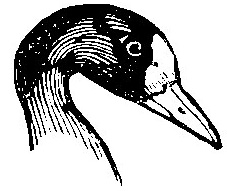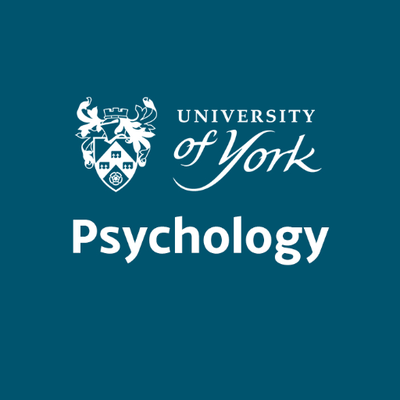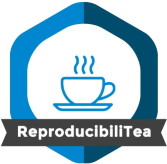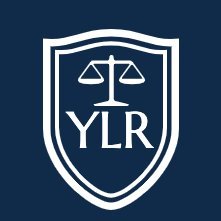
Our York Open Research community of practice brings together researchers, PGRs and professional services staff to discuss and support open research in different areas.
Our network of Open Research Advocates was launched in January 2021 to help promote and support open research practice locally within schools and departments. The network currently has around 30 members, representing all three academic faculties and a wide range of career stages and roles.
Advocates have been involved in delivering events and training, and developing initiatives such as the York Open Research Awards.
Find an Advocate in your field, or take a look at the Become an Advocate page on the York Open Research wiki for details on how to join the network.
If you have access to Slack as a member of the University, then you can join the #york-open-research channel to share expertise or ask questions.
There are also a growing number of practitioner-led groups and initiatives across the University with an interest in supporting and advocating for open research practice. If you are aware of, or involved in, any groups not listed below then please get in touch via our feedback form.
 The Archaeology Data Service (ADS), is a non-profit organisation hosted by the University of York. A world-leading digital repository for heritage data, ADS is an open access accredited digital archive for archaeological research outputs. The Archaeology department also hosts Internet Archaeology - an open access, independent journal which has been awarded the Directory of Open Access Journals Seal.
The Archaeology Data Service (ADS), is a non-profit organisation hosted by the University of York. A world-leading digital repository for heritage data, ADS is an open access accredited digital archive for archaeological research outputs. The Archaeology department also hosts Internet Archaeology - an open access, independent journal which has been awarded the Directory of Open Access Journals Seal.
Contact: help@archaeologydataservice.ac.uk
 Aspectus is an open access journal for visual culture, run by doctoral students in the History of Art Department with a commitment to the principles of equality through access.
Aspectus is an open access journal for visual culture, run by doctoral students in the History of Art Department with a commitment to the principles of equality through access.
The journal editorial board received a York Open Research Award in 2022.
Contact: histart-aspectus@york.ac.uk
 York Papers in Linguistics is a long-running open access journal run by postgraduates in the Department of Language and Linguistic Science, aimed at highlighting research in the area of linguistics at York.
York Papers in Linguistics is a long-running open access journal run by postgraduates in the Department of Language and Linguistic Science, aimed at highlighting research in the area of linguistics at York.
 The Department of Psychology Open Science Interest Group promotes and monitors the use of open science practices in their department and offers support for those who wish to engage in open science by organising workshops and sharing educational resources (materials available on OSF), and organising peer support.
The Department of Psychology Open Science Interest Group promotes and monitors the use of open science practices in their department and offers support for those who wish to engage in open science by organising workshops and sharing educational resources (materials available on OSF), and organising peer support.
The introductory workshop, Open Science: The What, Why and How, received a York Open Research Award in 2022.
Contact: Dr Dan Denis

ReproducibiliTea York is an informal ECR-led forum to discuss issues of open science and consider the reproducibility of research practices. They meet fortnightly in the Department of Psychology and welcome researchers from across disciplines. Discussion materials are available on OSF.
The group received a York Open Research Award in 2021.
Contact: psychology-reproducibilitea@york.ac.uk
Research Coding Club is an informal discussion group for anyone at York who works with research software. They maintain a Slack channel, mailing list and GitHub repository, and run code clinics and seminars.
 Education Research for Open Science (EROS) is an Open Science working group within the Department of Education who believe that the evidence based benefits of open science practices can apply to all paradigms/approaches, though at different levels and in different ways. Workshop materials and resources available on OSF and Google Drive.
Education Research for Open Science (EROS) is an Open Science working group within the Department of Education who believe that the evidence based benefits of open science practices can apply to all paradigms/approaches, though at different levels and in different ways. Workshop materials and resources available on OSF and Google Drive.
Contact: eros-education-group@york.ac.uk
 OASIS makes research on language learning, use and education available and accessible to a wide audience through one-page summaries of published research articles.
OASIS makes research on language learning, use and education available and accessible to a wide audience through one-page summaries of published research articles.
Contact: oasis@oasis-database.org

 The York Law Review is a student-run open access journal for legal scholarship, written by undergraduates and postgraduates within the York Law School.
The York Law Review is a student-run open access journal for legal scholarship, written by undergraduates and postgraduates within the York Law School.
 This LibGuide is licensed for reuse under a Creative Commons NonCommercial ShareAlike International 4.0 licence.
This LibGuide is licensed for reuse under a Creative Commons NonCommercial ShareAlike International 4.0 licence.
Illustrations by Manfred Steger, licensed for reuse under a Pixabay Content licence.